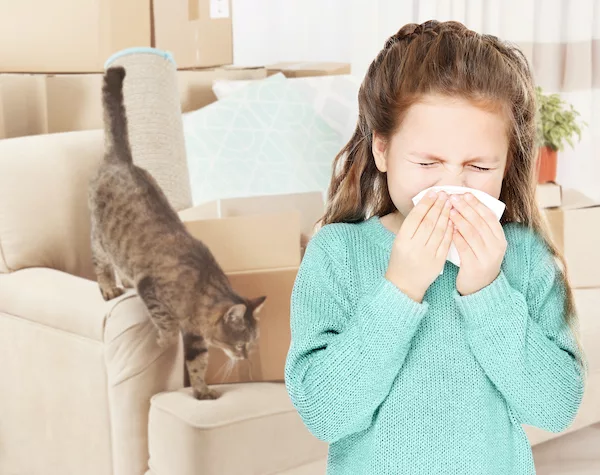Pet allergies can be a significant challenge for both pet owners and veterinarians. Despite the discomfort and inconvenience, many allergy sufferers are determined to maintain a healthy bond with their pets. In this blog post, we will discuss a veterinarian’s guide to surviving pet allergies, including tips and tricks for sensitive owners.
Understanding Pet Allergies
- The science behind pet allergies involves allergens, immune responses, and symptoms. When individuals with pet allergies come into contact with allergens from their pets, their immune systems overreact, causing symptoms such as sneezing, itching, and watery eyes.
- Common allergens in pets include dander (tiny flakes of skin), saliva, and urine. These allergens can become airborne and trigger allergy symptoms.
- Identifying the signs of pet allergies in humans is crucial in determining the appropriate course of action. Symptoms may include sneezing, runny or stuffy nose, itchy or watery eyes, and skin rashes.
Choosing the Right Pet for Allergy Sufferers
Managing Pet Allergies in the Home
Medical Interventions for Pet Allergy Relief
Lifestyle Changes to Reduce Allergy Symptoms
When to Reevaluate Pet Ownership
The Role of Veterinarians in Allergy Management
The Benefits of Overcoming Pet Allergies
Managing pet allergies is an ongoing process that requires dedication, vigilance, and a willingness to adapt. With the support of veterinarians and a balanced approach to allergy management, sensitive pet owners can continue to enjoy the love and companionship of their pets. By sharing their experiences and raising awareness, pet owners can help others overcome the challenges of pet allergies and forge a stronger bond with their furry, feathered, or scaled friends.
Famous Veterinarians Pet Allergies Puppy's First VetFrequently Asked Questions
Pet Allergies
Symptoms of pet allergies can include sneezing, stuffy or runny nose, itchy or watery eyes, coughing, wheezing, shortness of breath, skin rash or hives, and in severe cases, asthma symptoms. Consult a healthcare professional for accurate diagnosis and advice.
Unfortunately, there is no known cure for pet allergies. However, there are ways to manage the symptoms, such as avoiding exposure to pets, keeping them out of certain areas of your home, using air purifiers, and taking allergy medications.
It is possible to live with a pet you are allergic to, but it can be challenging. Managing the allergies through measures like keeping the pet out of certain areas, maintaining good cleanliness, using air purifiers, and taking allergy medications can help make it more manageable. However, it is important to consult with a healthcare professional for personalized advice.
Allergies can develop suddenly, even if you previously had no allergic reactions. Common reasons include increased exposure to pets, changes in the immune system, genetic predisposition, or simply developing sensitivities over time. Consulting with a healthcare professional can help determine the specific cause and provide appropriate guidance.
Building immunity to dog allergies is not easy. You can try including gradual exposure to dogs to desensitize your immune system, keeping a clean living environment, using air purifiers, and taking prescribed medications or allergy shots.
Having allergies to your dog does not mean you have to get rid of them. You can take steps to manage the symptoms, such as keeping your living space clean, using air purifiers, and taking allergy medications. However, the severity of your allergies and your personal circumstances should be considered. It’s best to consult with a healthcare professional for guidance on how to effectively manage your allergies while keeping your dog.
Pet allergies can worsen over time. Continued exposure to allergens can lead to an increased immune response, making the symptoms more severe. Consulting with a healthcare professional can help manage the worsening allergies effectively.




